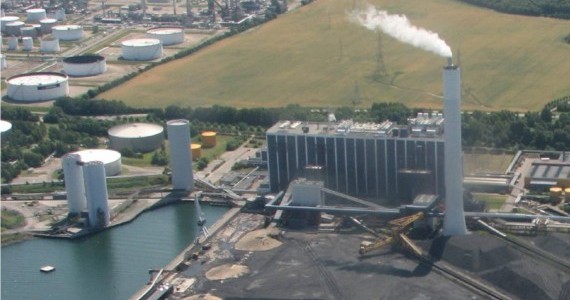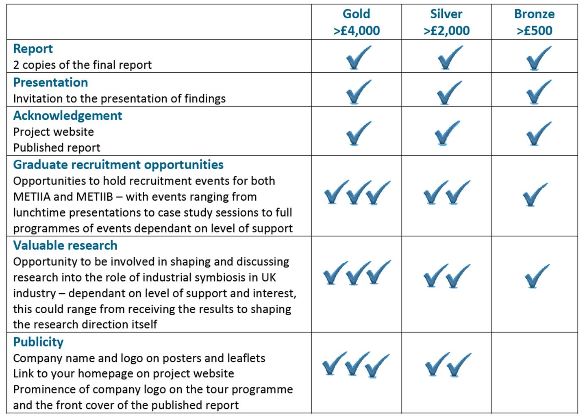Overseas Research Programme 2015 - Industrial Symbiosis: Relationship management

What is industrial symbiosis and why study it?
Industrial symbiosis is an association between two or more companies in which the wastes or by-products of one are the raw materials of another. It is a concept with intuitive appeal but which is currently struggling to live up to expectations. However, in an increasingly complex and interconnected world it should be on the agenda of businesses and policy makers. Scandinavia, with Kalundborg in Denmark and several prominent examples in Sweden, seems to be a particular haven for industrial symbiosis. It is therefore the perfect region to evaluate the reasons, benefits and challenges of industrial symbiosis.
Project Focus
Why do industrial symbiotic relationships develop and flourish?
Industrial symbiosis has promised much but delivered little. Kalundborg is often viewed as a poster child for industrial symbiosis, with a network which developed gradually and without a grand plan. Firms developed relationships organically as they sought to make economic use of their by-products and comply with increasingly stringent environmental regulation.
However, governmental attempts to repeat Kalundborg’s success have largely fallen flat. Many Eco-Industrial Parks, such as the USPCSD projects in the USA, have failed deliver in the long term. So what factors lead to success? How are the complex relationships inherent in industrial symbiotic relationships managed? What roadblocks must be overcome? And what implications does the diametric opposition of bureaucratic rigidity to organic systems have for policy makers?
What can be learnt from Scandinavia’s success and how can it be transferred elsewhere?
Scandinavia is renowned for strong and socially proactive governments. There is a strong sense of societal responsibility, even in business. The Swedish hubs appear to revolve around combined heat and power generation. But can clear factors be identified in Scandinavia’s success and to what extent can these be transferred to other countries, with different business contexts and government approaches?
Implementation
Following several months of Cambridge-based research, the team of manufacturing engineering students and staff will make a two-week visit to Denmark and Sweden in July 2015, visiting Kalundborg and Swedish examples of industrial symbiosis.
Report and presentation
The detailed findings of the project will be communicated in two ways:
- A comprehensive written report
- A presentation of the findings at the Institute for Manufacturing
Sponsorship opportunities
We invite you to partner with us by tailoring a sponsorship package to your needs.
A key opportunity for those interested in graduate recruitment at the University of Cambridge is access to Manufacturing Engineering students through holding recruitment events and attendance at broader events in department, with the scope of that access linked to the level of support provided.
The other key opportunity is shaping and accessing the research itself and the discussion surrounding it. A report on how implementations of industrial symbiosis in Scandinavia will shed light on the role of government in supporting industrial symbiosis and how companies should be approaching it in the UK. The presentation of the findings at the IfM will provide a fantastic opportunity to join the discussion.
Sponsors
Sponsorship packages
Various levels of sponsorship are available and terms are negotiable. Companies can also choose to support a particular item such as travel expenses.

Main sponsor opportunity
If your company would like more involvement with the organisation and outcomes of the tour, there is the opportunity to become our main sponsor. Benefits of this could include privileged access to MET students for recruitment purposes and a core role in shaping the research process.
For further information, please contact:
Jess Manning
T: +44 (0)7806 602509
E: jaem2@cam.ac.uk













